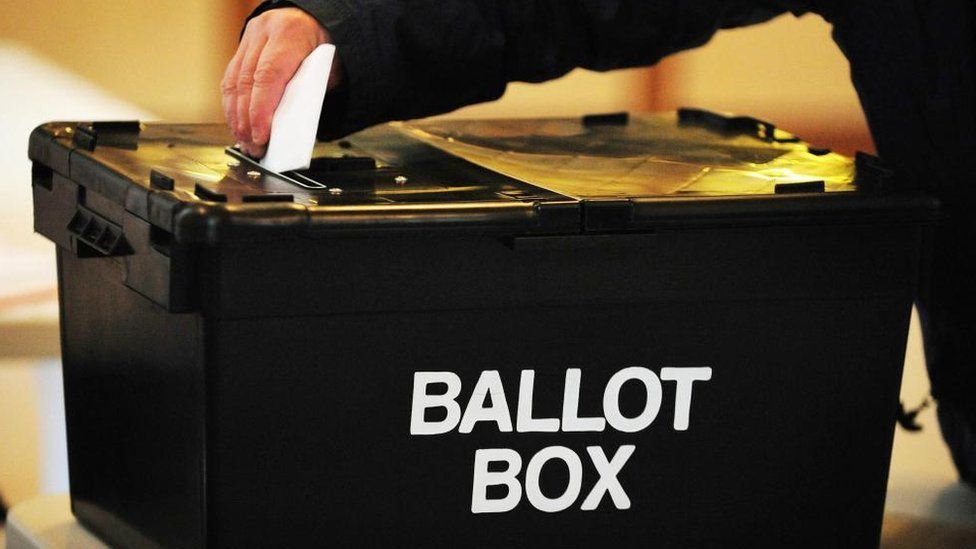ARTICLE AD BOX
 Image source, PA Media
Image source, PA Media
By Chris Mason
Political editor, BBC News
They are the novel innovation in how increasing swathes of England are now governed.
Directly elected regional mayors.
And there is one heck of a contest going on in the West Midlands.
Conservative Andy Street, twice a victor here, has long worn his party affiliation lightly - and perhaps no more than now.
"I actually call it brand Andy. It's that first name. Who is going to lead this region? We're not choosing a party to run the region. We're choosing an individual," he tells me.
"My number one promise: place before party," it says in his manifesto.
His Labour rival is Richard Parker. One look at the national opinion polls, suggesting the Conservatives are miles behind, and little wonder many expect Mr Parker to win.
But regional polls paint a more confusing picture.
Yes, one poll the other day suggested Labour were well ahead. But another more recent one suggested the opposite.
"We know mayoral elections are very close, they are different to national elections," Mr Street tells me.
Richard Parker hopes he has a distinctive pitch in wanting to bring the buses here under his control.
"There are stories of people being unable to get to the doctors, to the high street, to college or to places where their jobs are. I don't think we can rebuild this region unless we overhaul the transport system," he says.
But he has to face questions about Labour-run Birmingham City Council, which has cranked up council tax big time, while cutting services.
"Let's be clear, Birmingham has had many issues, mistakes have been made," he says.
But, he claims, government cuts to its budget have also "done a lot of damage."
Also chasing votes here, Sunny Virk of the Liberal Democrats, Reform UK's Elaine Williams, Green Siobhan Harper-Nunes and independent Akhmed Yakoob.
It is a regional contest that will prompt national headlines. And that is sort of the point.
It was back in 2000 that London introduced the idea of a directly elected mayor.
At the beginning of May, contests will happen to elect ten of them around England.
North Yorkshire, much of the north east of England and the East Midlands are electing mayors for the first time - and elsewhere it is still fairly new.
It will mean that around half the population of England will have an elected mayor.
There are no directly elected mayors in Wales, Northern Ireland or Scotland. Although the Labour leader in Scotland, Anas Sarwar, has floated the idea of them.
"The role of mayors within England has been growing over the last decade. That's what is really exciting about the elections," Millie Mitchell from the Institute for Government tells me.
"These are increasingly powerful figures, with power over transport, skills, the local economy, the environment. Collectively they control £25bn of public spending, which is really quite substantial," she adds.
You can read more about this from the Institute for Government here.
The idea is mayors are much more visible than council leaders and represent much bigger patches than MPs.
And, so the argument goes, they are much better known - and visibility brings accountability. And means a collection of regional figures have a national platform.
But the mayoral model around England remains a patchwork. There are mayors in some places, not in others.
While some may baulk at the idea of more politicians, they are currently fashionable. The Conservatives and Labour like the idea.
And that means if you haven't got one yet, that may change before long.

 9 months ago
18
9 months ago
18








 English (US) ·
English (US) ·